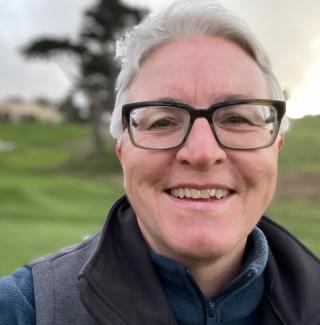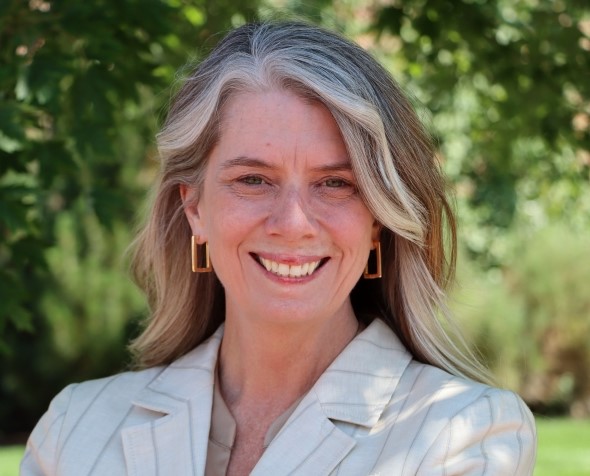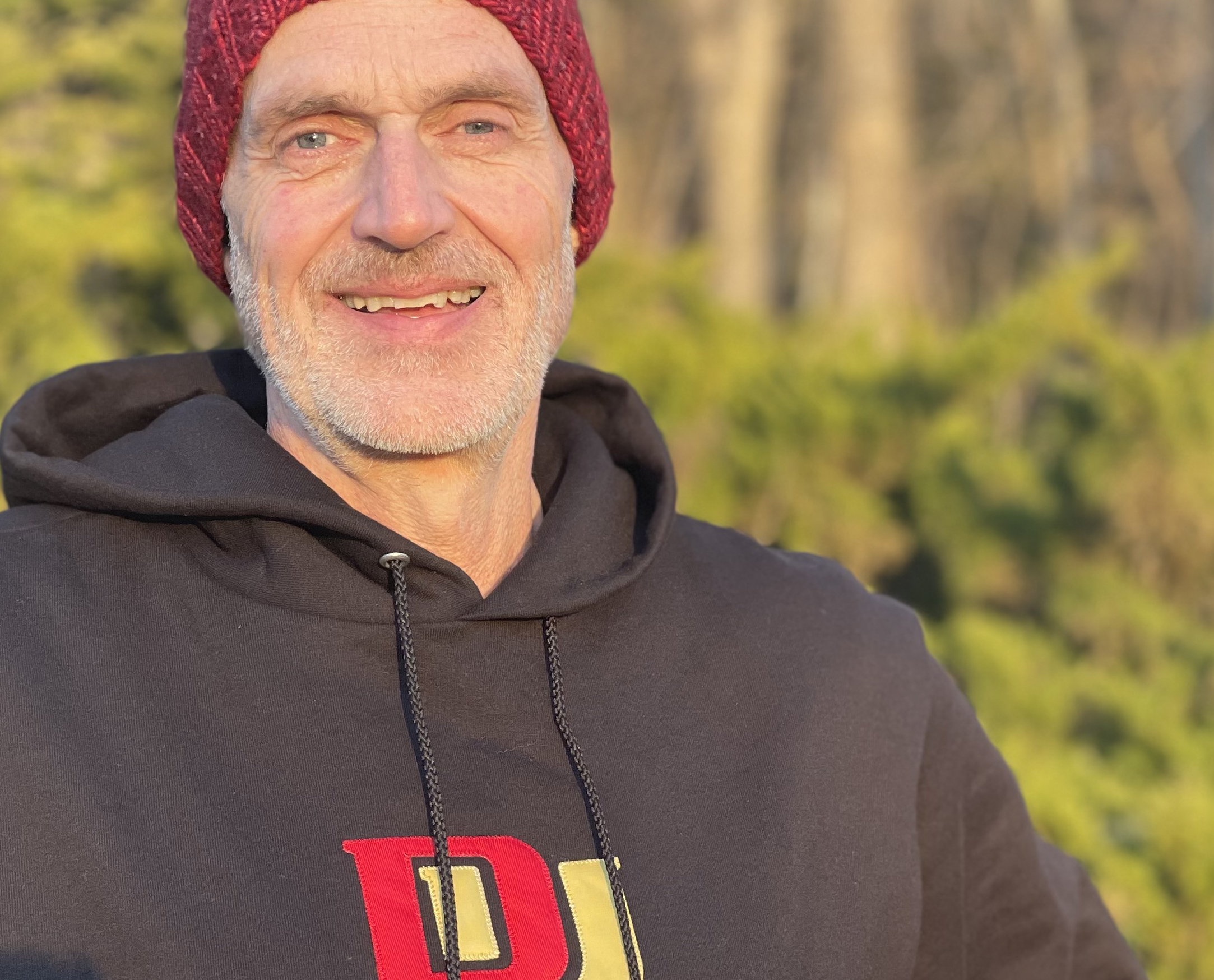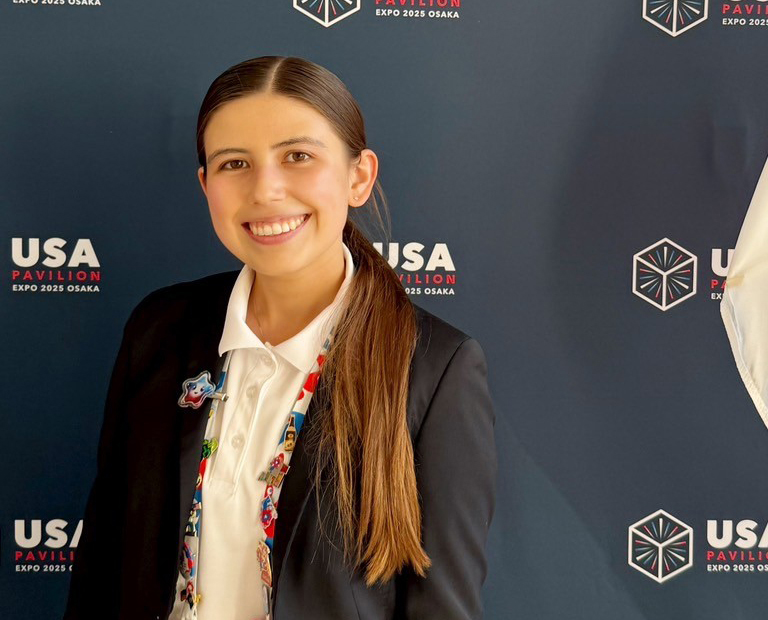CAHSS Professor's Livingston Lecture to Bring DU Student-Led Vietnam Protest "Woodstock West" to Life
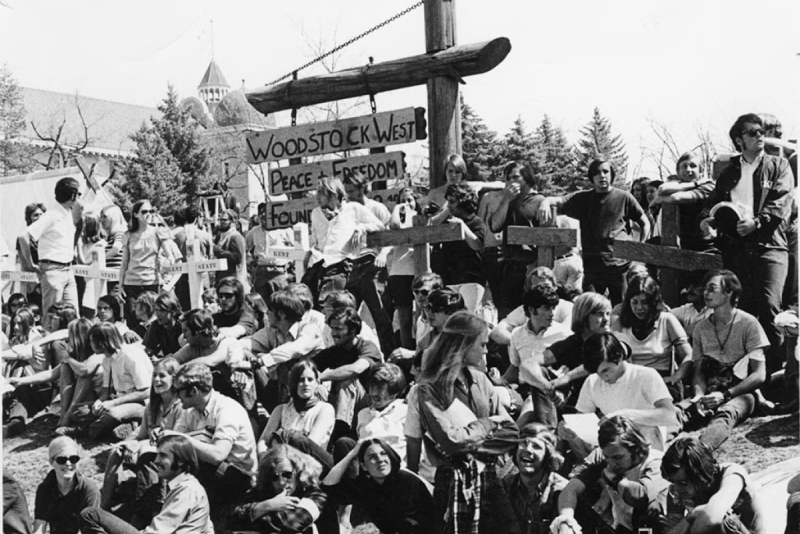
Sheila Schroeder had never heard of “Woodstock West” 20+ years ago when two students pitched a story about it for a video magazine class she was teaching. They said it was a University of Denver (DU) protest reacting against Nixon’s 1970 expansion of the Vietnam War and the deaths of four students at Kent State University. But the more she learned about the week-long incident that led to stand-offs with the administration, Denver Police and ultimately the National Guard, the more inspired she became to create a fictional feature film screenplay and a documentary podcast to bring the story to life.
The filmmaker and longtime professor in the College of Arts, Humanities & Social Sciences’ (CAHSS) Department of Media, Film & Journalism Studies (MFJS) started meeting with students, faculty and others involved, gathering photographs and news footage and sifting through the archives to develop a multi-faceted mosaic of perspectives. The material provides a revealing narrative — “not only of this particular moment in time at DU but of the larger movement toward peace that ultimately ended a horrible war in Vietnam that changed the lives of so many,” she said.
Schroeder will share glimpses of her projects — including a short performance from her in-progress screenplay and a teaser from the documentary podcast, archival videos and photos — with students, faculty, staff and community members attending her Livingston Lecture, 5:30-7 p.m., Thurs., Oct. 9, in Sturm Hall’s Davis Auditorium.
“This will be a different kind of Livingston Lecture,” she said. “I hope to honor those involved and make it less about me talking and more about providing a direct experience of art and the diverse ways in which we tell stories.”
The story is rich, compelling and deeply rooted in the media landscape of the day. As news reports of college students shot by National Guard troops at Kent State University unfolded on the then three television networks and in major newspapers, stunned students on campuses nationwide expanded protests and, in some cases, called for shutdowns. According to Schroeder, DU student organizers scrambled to appoint a core leadership group in the basement of what we now call Driscoll Hall and ultimately assembled a makeshift camp on the grounds where Anderson Academic Commons stands today.
Although Woodstock West grew quickly, organizers prioritized keeping people safe, Schroeder said. “Students and faculty put together watches on foot to make sure that what happened at Kent State did not happen here. There were student and faculty marshals who patrolled campus along with DU security.”
Chip Berlet, editor of “The Denver Clarion” student newspaper at the time, recounted that then Chancellor Mitchell, who had held numerous media positions before being selected the 13th Chancellor of DU, advised Berlet to keep the paper running despite rumors suggesting the newspaper was a target. The Chancellor also announced at a campus convocation that the university would not honor calls to shut the campus down. Denver Police razed what became known as Woodstock West “even as the students pulled tents and sleeping bags off the trucks and Woodstock West was born again,” Schroeder said.
Unable to contain the situation, the police retreated, and Woodstock West expanded across Evans Avenue into the large green area to the north. As word spread beyond campus (presumably through one of the DU students who attended an anti-war rally of 30,000 people held that Saturday in downtown Denver), Woodstock West grew. The expansion prompted then Governor Love to visit campus, implore students to disperse and, when they refused, eventually deploy the National Guard.
According to Schroeder, news that the governor had called in the National Guard resulted in a 4 a.m. meeting in which student organizers decided “that they had come in peace and would leave in peace.” Although fires continued to smolder, when the Guard arrived on campus later that morning, the students had gone.
Many of the students she interviewed remember Woodstock West as a pivotal moment in their lives. “Chip Berlet said it sent him on a path of being part of the media, protecting truth against power and being very politically savvy about authoritarian regimes. Another person I spoke with was inspired to go to law school and devote his legal career to various kinds of humanitarian work.”
Schroeder expressed gratitude for those who stood up for something they believed was right “despite so much momentum in the other direction,” she said. “I have nothing but respect for the organizing students, faculty and community members and their ability to enact change. It was not a drop in the bucket; it was something that helped change hearts and minds around Vietnam when many people were still supporting it. Having the National Guard called onto the DU campus with loaded guns and bayonets and having that end peacefully was a choice on the part of these students.”
The John C. Livingston Lecture in World History highlights a current CAHSS faculty member and their work related to history. Register to attend Schroeder’s Livingston lecture here.
